Mozambique: Gueta Chapo pledges support to conjoined twins - Notícias report
Mozambique: Defence Ministry denies torture claims – AIM report
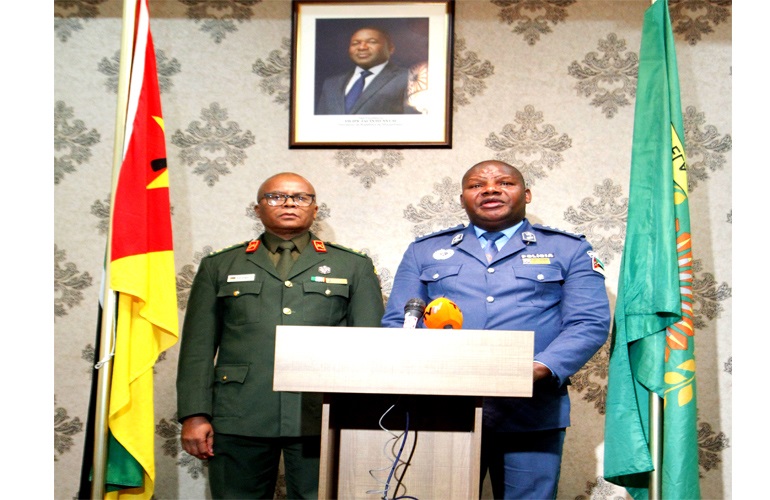
Photo: Noticias
The Mozambican Defence Ministry has denied the claims made by the human rights organisation Amnesty International that members of the defence and security forces have tortured prisoners and committed other serious abuses in the northern province of Cabo Delgado, where they are fighting acts of terrorism from a group connected to the international network that calls itself Islamic State.
Amnesty bases its claim on videos which show “the attempted beheading, torture and other ill-treatment of prisoners; the dismemberment of alleged opposition fighters; possible extrajudicial executions; and the transport and discarding of a large number of corpses into apparent mass graves”.
“This behaviour flouts fundamental principles of humanity”, said Deprose Muchena, Amnesty’s Regional Director for East and Southern Africa, adding that the abuses committed by the islamists “can never justify further violations by the security forces of Mozambique”.
Mozambique: Torture by security forces in gruesome videos must be investigated https://t.co/gFxiiZfQXM
— AmnestySouthernAfrica (@AmnestySARO) September 9, 2020
Amnesty calls on the Mozambican government to “order a swift, transparent and impartial investigation to bring all those responsible for such crimes to justice in fair trials.”
Amnesty says it received five videos and three photos “from sources within Mozambique”. Amnesty’s main evidence that the abusers in the videos are members of the defence and security forces are that they wear uniforms that seem identical to those of the Mozambican armed forces (FADM) and of the police Rapid Intervention Unit (UIR – the Mozambican equivalent of the riot police). They also speak in the official language, Portuguese, and in Shangaan, a language widely spoken in southern Mozambique.
The Defence Ministry reaction to the videos, read out on national television on Thursday by its spokesperson, Omar Saranga, while recognising the importance of the work done by Amnesty, suggests that the videos have been faked.
Saranga said the defence and security forces received the Amnesty evidence “with concern because this calls into question one of the noble missions enshrined in the Law on Defence and Security Policy, which is to ensure the defence of citizens and the protection of their property”.
He added that the defence forces “recognise Amnesty International as a relevant actor in the pursuit of international humanitarian law” but the reliance on videos and photographs failed to take into account “the nature of the propaganda of the terrorist group operating in Cabo Delgado, which seeks to denigrate the defence and security forces”.
The videos of torture and other abuses should not be regarded as definitive proof, Saranga said, “bearing in mind that one of the tactics used by the terrorists in their macabre attacks against the population is to pass themselves off as members of the defence and security forces, in an attempt to confuse national and international public opinion”.
He added that the terrorists operating in Cabo Delgado “make use of the new technologies such as the internet and social media, and of ‘’fake news’’ which guarantees them a global audience”. Their use of computer technology “allows them to keep in contact with their members, to manage and plan actions without the need for a geographical centre of gravity, and thus to transmit messages, to maintain their clandestine nature and to recruit new members”.
Saranga criticised Amnesty for its silence about the raids carried out by the islamists since October 2017. There had, for example, been no reaction from Amnesty International to the massacre in the village of Xitaxi on 8 April, where more than 50 young Mozambicans were killed because they refused to join the terrorists.
He said that Mozambique is a signatory to international human rights agreements, notably to the United Nations Convention against Torture and Other Cruel, Inhuman or Degrading Treatment.
The defence and security forces, Saranga added, “reaffirm their commitment to defend and protect human rights and their willingness to cooperate with all forces in society in search of the truth, and their readiness to analyse all the witnesses, complaints, documents or allegations that reach them in good faith so as to be the object of investigation and accountability in terms of the law”.
Saranga declared that the defence and security forces do not tolerate any forms of torture or ill-treatment, and he urged all forces in Mozambican society “to denounce any and every act of this nature” so that appropriate measures can be taken.



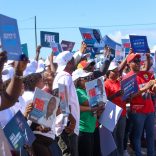
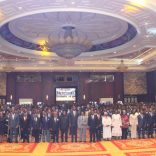
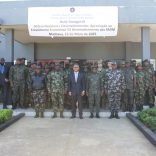

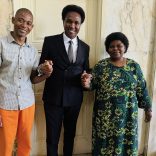





Leave a Reply
Be the First to Comment!
You must be logged in to post a comment.
You must be logged in to post a comment.